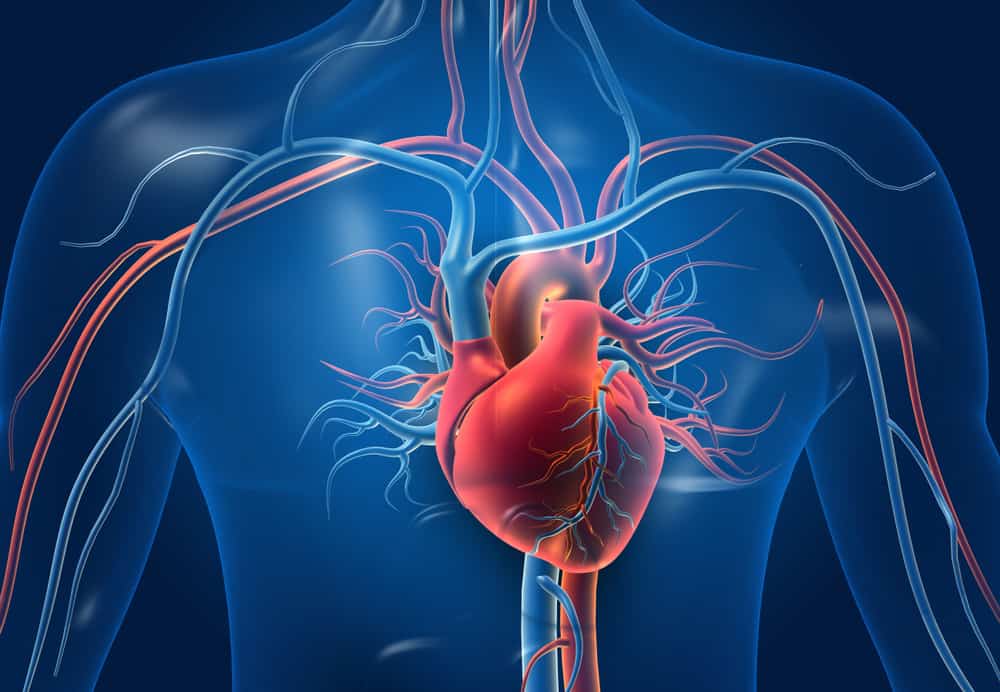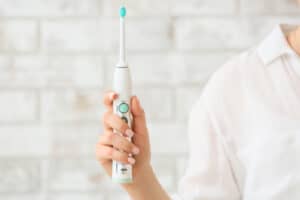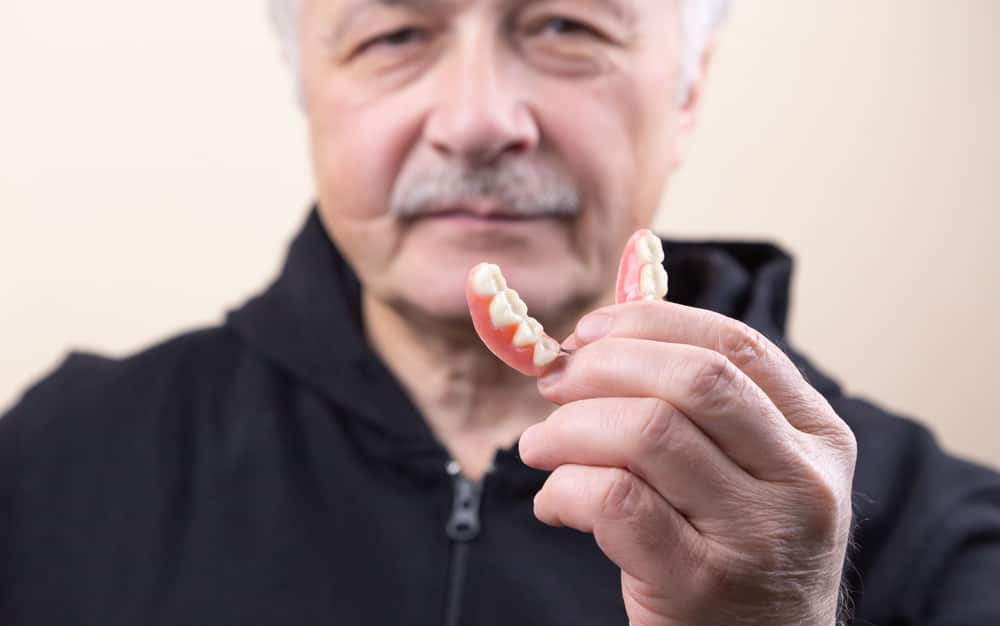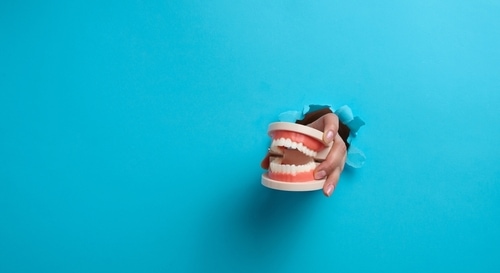How many times have I fantasized about dropping my teeth into a cup containing a cleaning capsule at the end of the day? I may be tired, but it’s flossing time because I still have my original teeth. Then, it’s manual brushing, followed by the Philips Sonicare finale. I do it because I know how oral health impacts our overall health
As we age, our bedtime ritual keeps extending itself in terms of self-care and necessary maintenance. But ending our day by paying attention to oral hygiene is vital.
How does oral health impact our overall health? Let’s begin with our hearts.

Did You Know That Oral Health Influences Your Overall Health?
Neglecting daily oral hygiene can result in cavities and gum disease – or in more serious health issues:
- Endocarditis: An infection of the inner lining of your heart chambers or valves when bacteria migrate from your mouth. This bacteria is distributed through your bloodstream and attaches to certain areas of your heart.
- Cardiovascular disease: Oral bacteria and the inflammation they can cause are implicated in the development of clogged arteries and stroke.
- Premature birth and low birth weight may be the result of periodontitis
- Pneumonia: What’s in your mouth does not stay in your mouth. Bacteria from your mouth can move to your lungs and cause respiratory disease.
Now, there is also controversy about a possible link between Alzheimer’s and poor oral hygiene. Scientists are researching a theory that viruses and various bacteria, such as those that cause gum infection, could be a trigger.
These are serious issues that require serious attention.
A Friendly Guide to Dental Care and Maintenance
Caring for your teeth is essential for maintaining a beautiful smile and promoting overall oral health. It’s a lifelong journey, and the key is consistency. By incorporating oral care into your daily regimen, you’ll be on your way to keeping your teeth in optimal condition.
Visiting your dentist regularly is essential. A dentist’s expertise can help identify and address potential issues before they become serious problems. In addition, they can offer valuable advice for the maintenance of a healthy mouth.
Daily Oral Care Routine 
- First, always brush your teeth at least twice a day for two minutes each time. Use a soft-bristled toothbrush and toothpaste to remove plaque and prevent tooth decay. Make sure to brush all surfaces of your teeth, including the front, back, and chewing surfaces, and don’t forget your tongue.
- Secondly, floss daily between your teeth to remove plaque and food debris. And in order to floss effectively, you need to use the proper technique. Gently slide the floss between your teeth in a C-shape motion against the sides of each tooth.
- Remember to incorporate mouthwash into your daily routine. Swishing mouthwash for 30 seconds after brushing and flossing helps remove any remaining food particles, providing additional protection against plaque buildup and bad breath.
If you consistently apply these practices, you’ll enjoy a healthier mouth, which is something to smile about!
Nutrition and Oral Health
A well-rounded diet will significantly impact the health of your teeth and mouth. By choosing the right foods and limiting the harmful ones, you’re on your way to maintaining good oral hygiene. Let’s look at some things that will help promote better oral health.
- Calcium
Firstly, ensure your diet is rich in calcium, as it is crucial for promoting strong teeth and bones. Including calcium-rich foods like milk, cheese, leafy greens, and fortified tofu in your daily meals can promote the strength of your teeth. Then, as a healthy snack option, consider incorporating almonds and other calcium-rich nuts and seeds into your diet.
- Sugar Consumption
Pay attention to your consumption of sugar. Excessive sugar contributes to the development of dental caries and cavities. Reduce or avoid fruit drinks, candy, and sodas, which pose risks to your oral health when consumed in large quantities.
Despite their natural sugars, some fruits offer important nutrients that benefit oral health. Chewing fibrous fruits like apples or pears can stimulate saliva production, which washes away food particles and neutralizes acids in the mouth. However, consume these in moderation and rinse your mouth with water afterward to remove any residual sugars.
Food Texture
Be mindful of the texture and composition of your snacks. Sticky and hard foods can lodge food particles between your teeth, increasing the potential for plaque accumulation and tooth decay. Remember to brush and floss daily to remove food particles, especially after consuming culprit foods like dried fruit or chips.
Choice of Beverage
Lastly, the frequency of your meals and your choice of beverage are vital for promoting healthier oral environments. Avoid sipping on sweetened drinks throughout the day, as prolonged exposure to sugars can contribute to dental issues. Instead, opt for water, which promotes better oral hygiene and overall health.
How to Prevent Common Dental Problems
- Replace your toothbrush every three months or when the bristles become frayed.
- To further protect your teeth and gums, consider using an antimicrobial mouthwash to maintain a clean and fresh mouth. Mouthwash will combat the growth of harmful bacteria that could increase the risk of tooth decay or gum disease.
- In addition to basic oral hygiene practices, be sure to visit your dentist regularly—at least twice a year—for checkups and cleanings. Professional dental cleanings remove plaque and tartar build-up, the primary causes of tooth decay, cavities, and gum disease. Your dentist can also identify early signs of dental issues and provide prompt treatment, preventing problems from progressing.
- Diabetics should pay special attention to regular cleaning as a build-up of plaque is said to affect insulin levels.
Visiting the Dentist 
The American Dental Association suggests scheduling dental visits at least twice a year for check-ups and professional dental cleaning.
Professional cleaning plays a key role in maintaining a healthy mouth. Despite your best efforts with brushing and flossing, plaque and tartar can still build up on your teeth and gums. A dental cleaning helps remove this buildup and prevents more serious issues like cavities and gum infections.
Should you need any dental procedures, your dentist will ensure you understand the procedure and address any concerns you may have. In most cases, anesthesia is available to manage pain and provide a comfortable experience during these procedures.
Most dental practices understand that some people are phobic about dental issues, and many will go out of their way to “cater to cowards.”
Dental Treatments and Materials
When it comes to maintaining dental health, there are a variety of treatments and materials to assist you in keeping that strong and healthy smile. Here are some commonly used dental treatments and materials that might be beneficial:
- Braces: Orthodontic treatments like braces are designed to correct misaligned or crowded teeth and bite problems. Braces gently apply pressure over time to adjust tooth positions. They come in different forms, including metal, ceramic, and clear braces.
- Dentures: If you lose a few or all of your teeth, dentures can provide a temporary or permanent solution for restoring function and appearance. Dentures can either be complete, replacing all teeth, or partial, filling the gaps left by missing teeth. They are custom-made for your mouth and can be removed for cleaning.
- Bridges: A dental bridge is an option for replacing one or more missing teeth. A bridge consists of a false tooth (or teeth) held in place by crowns attached to the healthy teeth on either side of the gap. Bridges can be made from materials such as porcelain or metal alloys.
- Implants: Dental implants are a longer-lasting solution for missing teeth. A titanium post is surgically placed in the jawbone to act as a root for the replacement tooth. After healing, a crown is connected to the post, resulting in a natural-looking and functioning tooth.
Then there are the somewhat less radical treatments:
- Crowns: Dental crowns are used to restore and protect damaged or weakened teeth. They can be made from a variety of materials, such as porcelain, ceramic, or metal. Crowns completely cover the affected tooth, improving its strength and appearance.
- Fillings: When your teeth develop cavities due to tooth decay, dental fillings are used to restore the tooth’s shape and function. Fillings help prevent further decay by closing off spaces where bacteria can enter. Common filling materials include gold, silver amalgam, and composite resins.
- Sealants: Dental sealants are a preventive measure to protect your teeth from decay. A thin, protective coating made of plastic or other dental materials is applied to the chewing surfaces of your molars. This sealant acts as a barrier, preventing food and bacteria from entering the grooves and causing cavities.
The Aesthetics of Dental Hygiene
We’ve all seen the results of neglecting one’s teeth: the yellowing, the gaps, inflamed gums, bad breath, or a sunken facial appearance after the loss of teeth. Maintaining oral hygiene, even for purely cosmetic reasons, should be a motivator. Your appearance matters, and a healthy mouth is a good place to start.
Impact of Lifestyle Factors
Your lifestyle choices can drastically impact the health of your teeth and mouth. Being aware of these factors and making positive changes can help you maintain a healthy mouth.
Smoking
Smoking and using tobacco products are major contributors to poor oral health.
They can lead to gum disease, tooth staining, and even tooth loss. Fortunately, quitting smoking can significantly improve your oral health.
Dry mouth, or xerostomia, can have harmful effects on your teeth and gums.
Not having enough saliva can cause discomfort, bad breath, and an increased risk of cavities and gum disease.
Medications 
Some medications also contribute to dry mouth, weakening your teeth and putting you at risk for decay.
Communicating with your healthcare provider about any medications you are taking and any potential side effects on your oral health is crucial.
Alcohol
Consuming alcohol excessively can negatively impact your oral health. It can cause your mouth to become dry and weaken tooth enamel, making your teeth more vulnerable to decay and cavities.
Diabetes
Diabetes can pose serious problems for your teeth and gums if not well-managed. High sugar levels can lead to tooth decay and gum disease. If you have diabetes, it’s essential to maintain reasonable blood sugar control and visit your dentist regularly.
Dental Innovations and Products
In the world of dental care, technology is advancing to help you maintain a healthy and beautiful smile. Several innovative products on the market can make your oral hygiene routine as simple as possible.

Electric Toothbrush
One popular product many people are incorporating into their routine is the electric toothbrush. These toothbrushes can help improve your brushing technique. They provide adequate pressure and multiple cleaning modes to address different oral care needs. Some have built-in timers to ensure you are brushing for the recommended two minutes.
Teeth Whiteners
Teeth whiteners are all the rage. Options for whitening range from simple at-home whitening strips to professional treatments at the dentist’s office. When selecting a teeth whitening product, consider factors such as the concentration of the active ingredients and application method. Then, consider the cost.
Activated Charcoal
Another popular product for whitening teeth is activated charcoal. This natural substance has absorbent properties that help to remove stains and discoloration from the surface of your teeth. Many people have found success in using activated charcoal toothpaste or powder. However, it’s important to note that overusing activated charcoal products can potentially cause tooth enamel erosion. So be sure to follow the product’s instructions carefully.
Desensitizing Gel
For those with sensitive teeth or gums, desensitizing gel might help alleviate discomfort. Active ingredients, such as potassium nitrate or stannous fluoride, block the transmission of pain signals from the nerves in your teeth to your brain. Desensitizing gels can be applied directly to your teeth with a toothbrush or included in your toothpaste.
Incorporating some of these dental innovations and products can help improve your overall dental health and enhance your smile. Always consult a dental professional before trying new products to ensure they are suitable for your specific needs.
How does oral health impact our overall health? From our heart to our arteries to our general appearance, that’s how. At the end of my working day, I must remind myself of the importance of the humble toothbrush and dental floss as being the proactive allies they are against health issues big and small.
Happy brushing!



